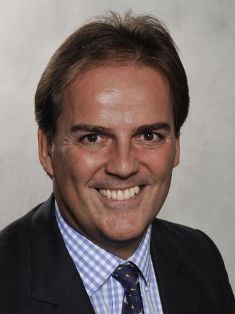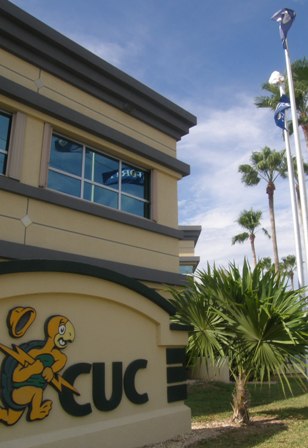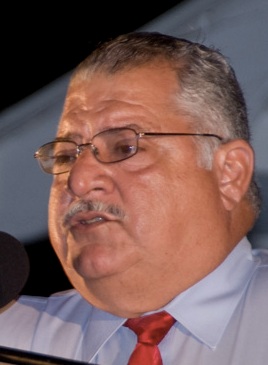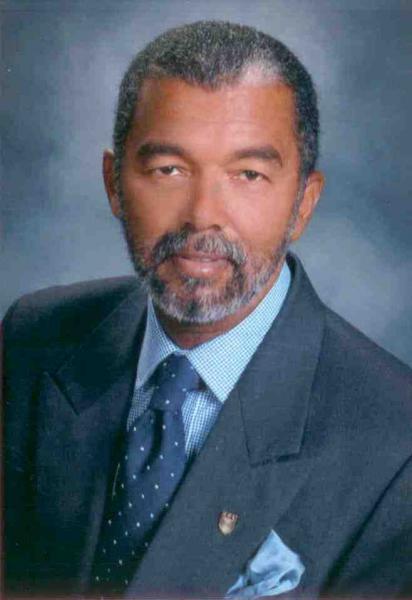Archive for July 23rd, 2010

Worker injured after 20ft fall from scaffolding
 (CNS): A 27-year-old man is currently being treated in hospital following a fall from scaffolding in Eastern Avenue, George Town, earlier today (Friday 23 July) . Police said that shortly before 11.00 this morning the man, who was working on the fourth level of scaffolding at Cayman Distributors, Eastern Avenue, fell approximately 20 feet to the ground. Emergency services attended the scene and he was conveyed to the Cayman Islands Hospital, where he is currently being treated for leg and facial injuries. Police have not yet revealed the circumstances surrounding the man’s fall. This is the second incident in the last two months involving a scaffolding accident. (Photo by Dennie Warren Jr)
(CNS): A 27-year-old man is currently being treated in hospital following a fall from scaffolding in Eastern Avenue, George Town, earlier today (Friday 23 July) . Police said that shortly before 11.00 this morning the man, who was working on the fourth level of scaffolding at Cayman Distributors, Eastern Avenue, fell approximately 20 feet to the ground. Emergency services attended the scene and he was conveyed to the Cayman Islands Hospital, where he is currently being treated for leg and facial injuries. Police have not yet revealed the circumstances surrounding the man’s fall. This is the second incident in the last two months involving a scaffolding accident. (Photo by Dennie Warren Jr)
Suspects in serious offences plead not guilty
(CNS): A number of suspected serious offenders appeared before the grand court recently to submit their pleas regarding a number of different charges. Last Friday, Raziel Jeffers who is charged with the murder of Damian Ming on 25 March in Birch Tree Hill West Bay and the Murder of Marcus Ebanks on 8 July 2009 on Bonaventure Road, West Bay, as well as the attempted murder of Adryan Powell has pleaded not guilty to all the offences. Jeffers will now face two grand court trials in November of this year and March of next. A 16 year old boy charged with the murder of Marcus Duran in Maliwinas way in March of this year has also pleaded not guilty and will face a four week trial in November. Craig Johnson has pleaded not guilty to accessory to murder in the same case and will face a judge alone trial in January.

UK Tory MP backs offshore finance centres
 (CNS): A conservative MP in the UK has spoken up for the world’s international financial centres (IFCs) in a debate in the British parliament this week. Mark Field, the Tory MP for the Cities of London and Westminster has argued that small international financial centres (IFCs) have endured unwarranted “political attacks and misguided criticism as major governments seek to understand the cause of the global financial crisis”. Field said initiatives currently being driven by the OECD, the G-20, the Financial Action Task Force, the EU and national governments run the risk of inaccurately pinpointing small IFCs as a scapegoat for the recent shortcomings in financial markets obscuring the real causes of the financial crisis.
(CNS): A conservative MP in the UK has spoken up for the world’s international financial centres (IFCs) in a debate in the British parliament this week. Mark Field, the Tory MP for the Cities of London and Westminster has argued that small international financial centres (IFCs) have endured unwarranted “political attacks and misguided criticism as major governments seek to understand the cause of the global financial crisis”. Field said initiatives currently being driven by the OECD, the G-20, the Financial Action Task Force, the EU and national governments run the risk of inaccurately pinpointing small IFCs as a scapegoat for the recent shortcomings in financial markets obscuring the real causes of the financial crisis.

Lawyers send students to study anything but law
(CNS): Although Maples and Calder is all about law and offshore finance the firm has traditionally offered a number of local scholarships to young people studying subjects completed unrelated to the legal or offshore world. Yesterday the firm announced that the 2010 non-legal scholarships have gone to five young people studying subjects that include mechanical engineering, biology and politics. Darren Ebanks, Morris Swaby Ebanks, Shenaye Ebanks, Takiyah Smith and Jameal WelcomeDale will all be going on to further education institutes overseas courtesy of the law firm.

Frog cuts power to over 13,000 homes
 (CNS): A power outage in the early hours of Thursday morning stretching from WestBay to East End was caused by a frog, the country’s power supplier, CUC, has confirmed. More than 13,450 electricity customers in George Town, West Bay, Seven Mile Beach and up to Frank Sound and the Queen’s Highway in East End were without power for around 1 hour and 30 minutes between 2:10 am and 3:48 am when power was restored. CUC also stated that the outage was not connected to an island wide cut over the weekend and both were isolated incidents.
(CNS): A power outage in the early hours of Thursday morning stretching from WestBay to East End was caused by a frog, the country’s power supplier, CUC, has confirmed. More than 13,450 electricity customers in George Town, West Bay, Seven Mile Beach and up to Frank Sound and the Queen’s Highway in East End were without power for around 1 hour and 30 minutes between 2:10 am and 3:48 am when power was restored. CUC also stated that the outage was not connected to an island wide cut over the weekend and both were isolated incidents.
Cayman takes lead on catastrophe bonds
(Royal Gazette): Recent figures published in Cayman have revealed that the islands is the leading offshore jurisdiction for listed catastrophe bonds, with a market almost seven times as big as Bermuda’s its nearest rival. There are 74 bonds listed on the Cayman Islands Stock Exchange with a value of over $7.7 billion. The first cat bond was listed in Cayman three years ago and Cayman Finance chair Anthony Travers says it has been a great success. "When you consider that the first cat bond was only listed in April 2007 it has been a great success story for Cayman and the Cayman Stock Exchange, particularly since Bermuda has in the past had the leading position in insurance related products."

Kurt queries Mac’s motives
 (CNS): The recent amendment to the planning law, which removes the need for government to gain planning permission for development if it deems it to be in the public interest, has been questioned by the leader of the opposition, who asked why government needs to be above the law. Kurt Tibbetts said no government should ever have more democratic rights than its people. He queried the reason why the premier needed to remove the obligation for government to seek planning permission unless it planned to go ahead with a project where it would wish to avoid the regular planning process. Speaking at a PPM meeting in George Town on Thursday evening, Tibbetts told the audience that he felt “something stinks” over the change. (Photo Dennie Warren Jr)
(CNS): The recent amendment to the planning law, which removes the need for government to gain planning permission for development if it deems it to be in the public interest, has been questioned by the leader of the opposition, who asked why government needs to be above the law. Kurt Tibbetts said no government should ever have more democratic rights than its people. He queried the reason why the premier needed to remove the obligation for government to seek planning permission unless it planned to go ahead with a project where it would wish to avoid the regular planning process. Speaking at a PPM meeting in George Town on Thursday evening, Tibbetts told the audience that he felt “something stinks” over the change. (Photo Dennie Warren Jr)

University president to unveil latest book
 (CNS): The story of Cayman’s political personalities since the 1950s has now been revealed in the latest academic book by the UCCI president and former education minster, Roy Bodden. Following the 2007 publication of The Cayman Islands in Transition: The Politics, History, and Sociology of a Changing Society, Bodden’s second installment in a planned trilogy, Patronage, Personalities and Parties: Caymanian Politics from 1950-2000, is now on the local bookshelves. The former politician and long time academic will be presenting his latest work at special signing at Books & Books next Friday.
(CNS): The story of Cayman’s political personalities since the 1950s has now been revealed in the latest academic book by the UCCI president and former education minster, Roy Bodden. Following the 2007 publication of The Cayman Islands in Transition: The Politics, History, and Sociology of a Changing Society, Bodden’s second installment in a planned trilogy, Patronage, Personalities and Parties: Caymanian Politics from 1950-2000, is now on the local bookshelves. The former politician and long time academic will be presenting his latest work at special signing at Books & Books next Friday.

Tropical Storm Bonnie on track for oil spill
(CNS): Tropical Storm Bonnie had increased its speed on Friday morning as it raced towards southern Florida on a course towards the Gulf of Mexico oil spill. Forecasters at the US National Hurricane Center in Miami said the storm was likely to reach the Gulf of Mexico by Saturday. Earlier this morning Bonnie was centred about 80 miles southeast of Miami with maximum sustained winds of 40 mph. The storm is moving at 19mph and tropical force winds extend outward up to 85 miles. The NHC said Bonnie could strengthen when it reached the gulf. There were no reports of major damage, flooding or injuries in the southeastern and central Bahamas as the storm past on Thursday night.

Woman injured in 2-car crash
 (CNS): A collision occurred at the roundabout at King’s Sports Centre in George Town at 8:42pm this evening where 2 vehicles collided at the intersection, sending one off the road and onto its side. One woman was sent to hospital with severe facial wounds that police said were not life threatening. The boyfriend of the woman and the male driver of the other car are reported to be unhurt. Police are investigating the incident. CNS also received unconfirmed reports that another single vehicle accident occurred on Seven Mile Beach early Friday morning in which a BMW flipped over.
(CNS): A collision occurred at the roundabout at King’s Sports Centre in George Town at 8:42pm this evening where 2 vehicles collided at the intersection, sending one off the road and onto its side. One woman was sent to hospital with severe facial wounds that police said were not life threatening. The boyfriend of the woman and the male driver of the other car are reported to be unhurt. Police are investigating the incident. CNS also received unconfirmed reports that another single vehicle accident occurred on Seven Mile Beach early Friday morning in which a BMW flipped over.